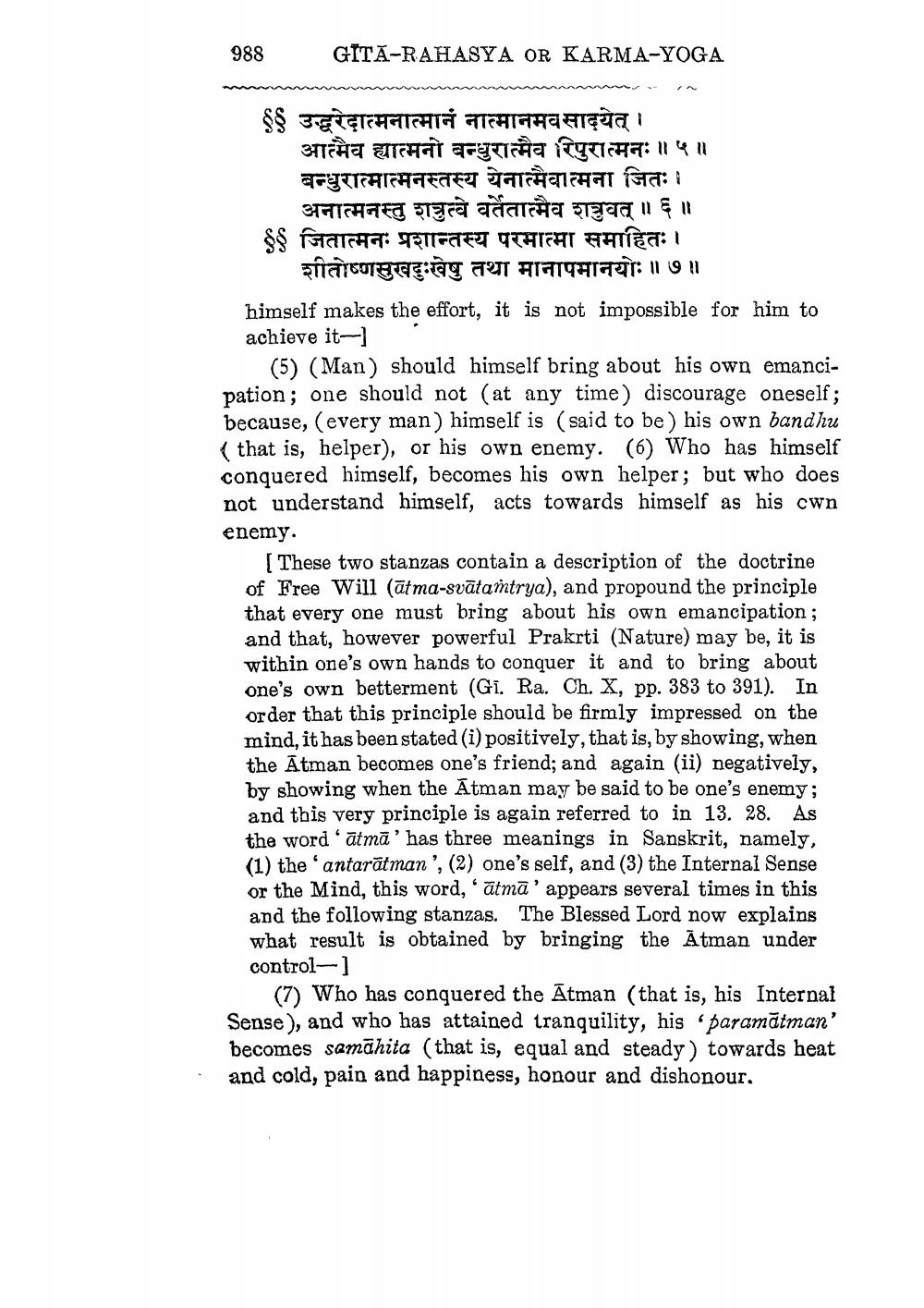________________
988
GITA-RAHASYA OR KARMA-YOGA
$$ उद्धरेदात्मनात्मानं नात्मानमवसादयेत् ।
आत्मैव ह्यात्मनो बन्धुरात्मैव रिपुरात्मनः॥५॥ बन्धुरात्मात्मनस्तस्य येनात्मैवात्मना जितः।
अनात्मनस्तु शत्रुत्वे वर्तेतात्मैव शत्रुवत् ॥६॥ $$ जितात्मनः प्रशान्तस्य परमात्मा समाहितः।।
शीतोष्णसुखदुःखेषु तथा मानापमानयोः॥७॥ himself makes the effort, it is not impossible for him to achieve it
(5) (Man) should himself bring about his own emancipation; one should not (at any time) discourage oneself; because, (every man himself is (said to be ) his own bandhu (that is, helper), or his own enemy. (6) Who has himself conquered himself, becomes his own helper; but who does not understand himself, acts towards himself as his cwn enemy.
[ These two stanzas contain a description of the doctrine of Free Will (āt ma-svātamtrya), and propound the principle that every one must bring about his own emancipation; and that, however powerful Prakrti (Nature) may be, it is within one's own hands to conquer it and to bring about one's own betterment (Gi. Ra. Ch. X, pp. 383 to 391). In order that this principle should be firmly impressed on the mind, it has been stated (i) positively, that is, by showing, when the Ātman becomes one's friend; and again (ii) negatively, by showing when the Atman may be said to be one's enemy; and this very principle is again referred to in 13. 28. As the word ' ātmā' has three meanings in Sanskrit, namely, (1) the 'antarātman', (2) one's self, and (3) the Internal Sense or the Mind, this word, 'ātmā' appears several times in this and the following stanzas. The Blessed Lord now explains what result is obtained by bringing the Atman under control-1
(7) Who has conquered the Ātman (that is, his Internal Sense ), and who has attained tranquility, his paramātman' becomes samāhita (that is, equal and steady ) towards heat and cold, pain and happiness, honour and dishonour.




